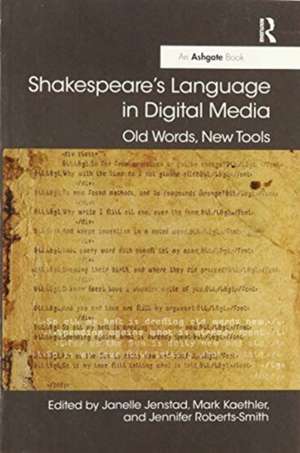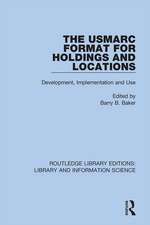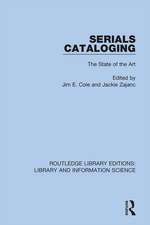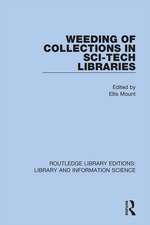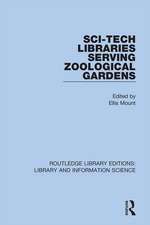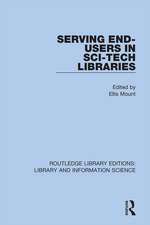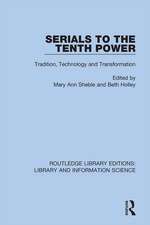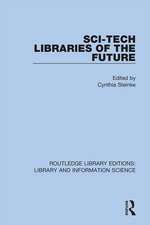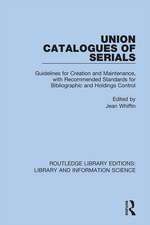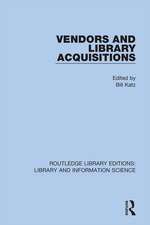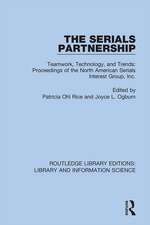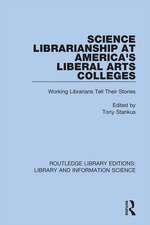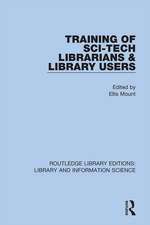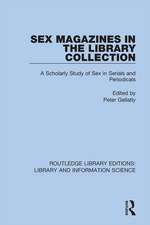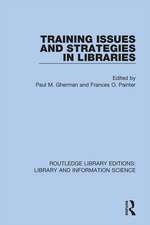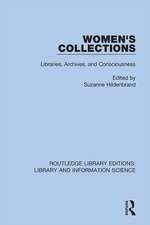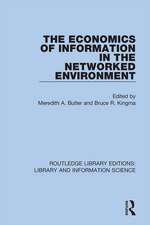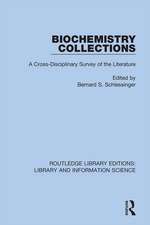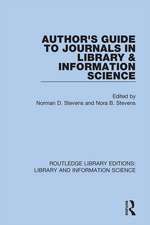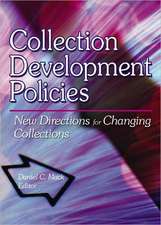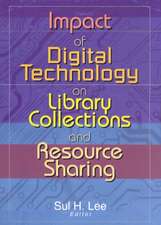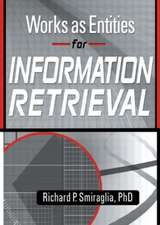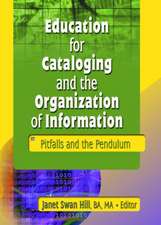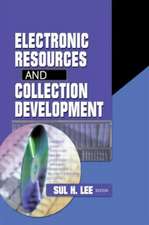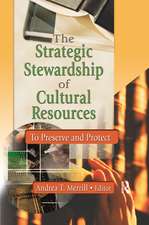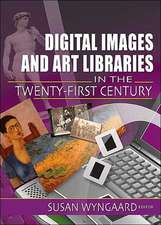Shakespeare's Language in Digital Media: Old Words, New Tools: Digital Research in the Arts and Humanities
Editat de Janelle Jenstad, Mark Kaethler, Jennifer Roberts-Smithen Limba Engleză Paperback – 4 mar 2020
What new insights do these tools offer about the ways Shakespeare's words made meaning in their own time? What kinds of historical or historicizing arguments can digital editions make about Shakespeare's language? A growing body of work in the digital humanities allows textual critics to explore new approaches to editing in digital environments, and enables language historians to ask and answer new questions about Shakespeare's words. The authors in this unique book explicitly bring together the two fields of textual criticism and language history in an exploration of the ways in which new tools are expanding our understanding of Early Modern English.
| Toate formatele și edițiile | Preț | Express |
|---|---|---|
| Paperback (1) | 311.31 lei 43-57 zile | |
| Taylor & Francis – 4 mar 2020 | 311.31 lei 43-57 zile | |
| Hardback (1) | 847.73 lei 43-57 zile | |
| Taylor & Francis – 4 ian 2018 | 847.73 lei 43-57 zile |
Din seria Digital Research in the Arts and Humanities
- 20%
 Preț: 946.39 lei
Preț: 946.39 lei - 9%
 Preț: 936.00 lei
Preț: 936.00 lei - 20%
 Preț: 247.25 lei
Preț: 247.25 lei -
 Preț: 311.33 lei
Preț: 311.33 lei -
 Preț: 309.31 lei
Preț: 309.31 lei -
 Preț: 324.93 lei
Preț: 324.93 lei -
 Preț: 311.14 lei
Preț: 311.14 lei -
 Preț: 311.28 lei
Preț: 311.28 lei -
 Preț: 281.45 lei
Preț: 281.45 lei -
 Preț: 325.94 lei
Preț: 325.94 lei - 17%
 Preț: 338.33 lei
Preț: 338.33 lei - 16%
 Preț: 335.37 lei
Preț: 335.37 lei -
 Preț: 460.69 lei
Preț: 460.69 lei - 26%
 Preț: 323.32 lei
Preț: 323.32 lei - 18%
 Preț: 1003.64 lei
Preț: 1003.64 lei - 31%
 Preț: 766.31 lei
Preț: 766.31 lei - 18%
 Preț: 1000.27 lei
Preț: 1000.27 lei - 31%
 Preț: 764.20 lei
Preț: 764.20 lei -
 Preț: 401.09 lei
Preț: 401.09 lei - 20%
 Preț: 1053.91 lei
Preț: 1053.91 lei -
 Preț: 384.05 lei
Preț: 384.05 lei - 28%
 Preț: 819.90 lei
Preț: 819.90 lei -
 Preț: 417.03 lei
Preț: 417.03 lei - 16%
 Preț: 339.10 lei
Preț: 339.10 lei -
 Preț: 389.38 lei
Preț: 389.38 lei -
 Preț: 381.92 lei
Preț: 381.92 lei -
 Preț: 489.26 lei
Preț: 489.26 lei -
 Preț: 469.34 lei
Preț: 469.34 lei - 18%
 Preț: 1004.55 lei
Preț: 1004.55 lei - 18%
 Preț: 1005.67 lei
Preț: 1005.67 lei - 18%
 Preț: 999.46 lei
Preț: 999.46 lei - 18%
 Preț: 1005.97 lei
Preț: 1005.97 lei -
 Preț: 489.26 lei
Preț: 489.26 lei - 18%
 Preț: 1000.27 lei
Preț: 1000.27 lei - 18%
 Preț: 1058.65 lei
Preț: 1058.65 lei - 18%
 Preț: 1000.27 lei
Preț: 1000.27 lei - 16%
 Preț: 337.84 lei
Preț: 337.84 lei - 13%
 Preț: 338.33 lei
Preț: 338.33 lei - 30%
 Preț: 878.82 lei
Preț: 878.82 lei
Preț: 311.31 lei
Preț vechi: 371.14 lei
-16% Nou
Puncte Express: 467
Preț estimativ în valută:
59.58€ • 61.97$ • 49.18£
59.58€ • 61.97$ • 49.18£
Carte tipărită la comandă
Livrare economică 14-28 aprilie
Preluare comenzi: 021 569.72.76
Specificații
ISBN-13: 9780367514624
ISBN-10: 0367514621
Pagini: 216
Ilustrații: 38
Dimensiuni: 156 x 234 mm
Greutate: 0.4 kg
Ediția:1
Editura: Taylor & Francis
Colecția Routledge
Seria Digital Research in the Arts and Humanities
Locul publicării:Oxford, United Kingdom
ISBN-10: 0367514621
Pagini: 216
Ilustrații: 38
Dimensiuni: 156 x 234 mm
Greutate: 0.4 kg
Ediția:1
Editura: Taylor & Francis
Colecția Routledge
Seria Digital Research in the Arts and Humanities
Locul publicării:Oxford, United Kingdom
Public țintă
PostgraduateCuprins
Introduction (Jennifer Roberts-Smith) Part I Old words through new tools: re-reading Shakespeare with EEBO-TCP and LEME 1. Beyond the OED loop: digital resources and the Arden 3 Cymbeline (Valerie Wayne) 2. Shakespeare’s hard words, and our hard senses (Ian Lancashire and Elisa Tersigni) 3. Terms of art in law and herbals (Daniel Aureliano Newman) 4. "Strangers enfranchised": Shakespeare’s Hamlet and the mother tongue (Elizabeth Bernath) Part II Old words, new worlds: Shakespeare’s language in digital editions 5. Text, performance, and multidisciplinarity: on a digital edition of King Leir (Andrew Griffin) 6. A digital parallel-text approach to performance historiography (Toby Malone) Part III Olds words, new codes: Shakespeare and the language of markup 7. Storing and accessing knowledge: digital tools for the study of early modern drama (Laura Estill and Andie Silva) 8. Past texts, present tools, and future critics: toward rhetorical schematics (Michael Ullyot and Adam Bradley) 9. Internet Shakespeare Editions and the infinite (editorial) others: supporting critical tagsets for linked editions (Diane Jakacki) Afterwords: Playful provocations for editing Shakespeare’s language in digital media
Notă biografică
Janelle Jenstad is Associate Professor in the Department of English, University of Victoria, Canada.
Mark Kaethler is an English Instructor at Medicine Hat College, Canada.
Jennifer Roberts-Smith is Assistant Professor and Associate Chair, Theatre and Performance in the Department of Drama and Speech Communication, University of Waterloo, Canada.
Mark Kaethler is an English Instructor at Medicine Hat College, Canada.
Jennifer Roberts-Smith is Assistant Professor and Associate Chair, Theatre and Performance in the Department of Drama and Speech Communication, University of Waterloo, Canada.
Descriere
A growing body of work in the digital humanities allows textual critics to explore new approaches to editing in digital environments, and enables language historians to ask and answer new questions about Shakespeare's words. The authors in this unique book explicitly bring together the two fields of textual criticism and language history in an exploration of the ways in which new tools are expanding our understanding of Early Modern English.
